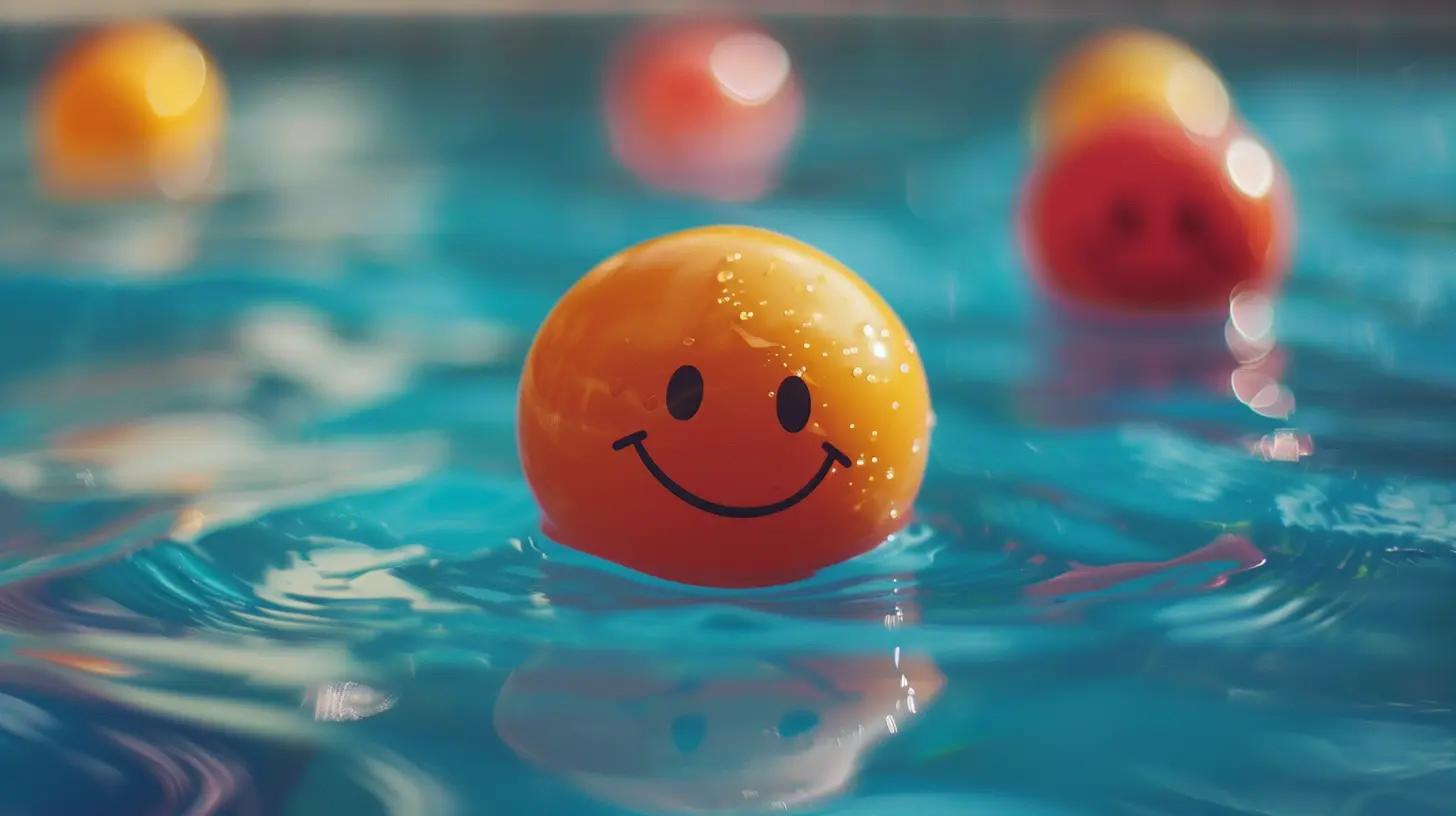The Role of Play and Fun in Adult Happiness
8 October 2025
Introduction
When was the last time you truly had fun—just for the sake of it? As kids, play was a natural part of life. Running around, laughing, being silly—these were everyday occurrences. But as adults, play often takes a backseat to responsibilities. Work, bills, deadlines, and errands take up most of our energy, leaving little time for fun. However, research shows that play isn't just for children; it's a crucial part of adult happiness too.
The idea that play stops being important once you reach adulthood is a myth. In reality, engaging in fun and playful activities can boost emotional well-being, improve relationships, and even enhance productivity. So, why do so many of us stop playing? More importantly, how can we bring play back into our lives? 
Why Do Adults Stop Playing?
The Pressures of Adulthood
As we grow older, societal expectations shift. We're told to be responsible, serious, and focused on success. Playing around isn’t seen as "productive," so we gradually replace it with work, chores, and obligations.Fear of Judgment
Adults often feel self-conscious about acting playful. There’s this unspoken rule that maturity means avoiding silliness. Dancing in public? Playing tag in the park? Singing loudly in your car? Many people avoid such activities because they fear being judged.Time Constraints
Between jobs, families, and daily responsibilities, squeezing in time for fun seems impossible. When faced with deadlines and obligations, play feels like a luxury rather than a necessity.While these reasons may seem valid, neglecting play can have serious consequences on mental health and overall happiness. 
The Science Behind Play and Happiness
Boosts Mental Health
Play is a natural stress reliever. When we engage in fun activities, our brains release endorphins—the chemicals responsible for feelings of pleasure and relaxation. Laughter, which often accompanies play, also reduces stress hormones like cortisol, improving our mood instantly.Strengthens Relationships
Ever noticed how close friends and couples who laugh and have fun together seem happier? Play fosters connections. Whether it’s through games, humor, or shared adventures, engaging in playful activities strengthens bonds and builds trust in relationships.Enhances Creativity and Problem-Solving
Play isn’t just about goofing off—it helps the brain think in new and innovative ways. When we allow ourselves to engage in playful activities, we enhance creativity, problem-solving skills, and adaptability. Some of the greatest ideas emerge when we aren’t taking life too seriously.Increases Life Satisfaction
Studies show that people who engage in playful activities regularly experience greater life satisfaction. Play helps break the monotony of daily routines and injects excitement into life. Those who prioritize fun tend to be more optimistic and resilient.
How to Bring Play Back Into Your Life
The good news? It’s never too late to reclaim playfulness! Here’s how you can reintroduce fun into your daily routine:1. Rediscover What You Loved as a Child
Think back to your childhood. What activities excited you the most? Was it painting, dancing, board games, or sports? Revisiting childhood joys can reignite your playful spirit.2. Prioritize Fun Without Guilt
Stop viewing play as wasted time. Just like exercise and sleep, play is essential for well-being. Schedule playtime into your week, whether it’s a game night, dance session, or hobby time.3. Be Spontaneous
Not all fun has to be planned. Sometimes, the best moments come from embracing spontaneity. Say yes to unexpected plans, crack a joke, or engage in a fun activity on a whim.4. Surround Yourself With Playful People
Being around playful and lighthearted individuals naturally encourages fun. Spend time with people who appreciate humor, adventure, and lightheartedness. Their energy will help remind you not to take life too seriously.5. Engage in Playful Physical Activities
Exercise doesn’t have to be dull. Try activities that feel more like play—dancing, hiking, swimming, trampoline jumping, or even joining an adult sports league. Moving your body in fun ways helps boost endorphins and keeps you engaged.6. Incorporate Play into Daily Life
Play doesn’t have to be a separate activity—it can be woven into everyday moments. Play with your kids or pets, joke around with coworkers, wear silly socks, sing in the shower, or turn chores into a game.7. Try New Things
Routine can stifle playfulness. Shake things up by trying new activities. Learn a new skill, take an improv class, visit a new place, or start a creative project. Experimenting with new experiences keeps life exciting.
The Link Between Play and Productivity
One of the biggest misconceptions is that play gets in the way of productivity. In reality, the opposite is true.Companies like Google and Pixar encourage play in the workplace because it leads to better ideas, improved morale, and increased motivation. Taking short breaks for playful activities can boost focus and energy, making work feel less draining.
Think about it: When you’re stressed and burnt out, do you perform at your best? Probably not. But after a fun weekend or a good laugh, you return to tasks feeling refreshed and ready to tackle challenges. Play fuels productivity, not hinders it.
Overcoming the Guilt of Having Fun
Many adults struggle with the guilt of taking time for fun. Society has conditioned us to believe that we must constantly be productive to be valuable. But happiness isn’t about working endlessly—it’s about balance.Remind yourself:
- Play is not a waste of time; it’s self-care.
- Having fun doesn’t mean you’re irresponsible.
- Life isn’t just about achieving goals; it’s about enjoying the journey.
Conclusion
Happiness isn’t just about success, money, or achievements—it’s about joy, laughter, and play. Adults often forget the importance of play, but neglecting fun can lead to stress, burnout, and unhappiness.Reintroducing play into life doesn’t require drastic changes. Small, playful moments—whether it’s joking with a friend, dancing in your living room, or picking up an old hobby—can have a profound impact on overall happiness.
So, give yourself permission to have fun. Laugh more, be silly, and embrace the joy of play. After all, life is meant to be enjoyed.
all images in this post were generated using AI tools
Category:
Psychology Of HappinessAuthor:

Alexandra Butler
Discussion
rate this article
1 comments
Veronica Ramirez
Embrace play unapologetically; adult happiness thrives on fun and spontaneity—don’t underestimate its power!
October 13, 2025 at 4:12 AM

Alexandra Butler
Absolutely! Embracing play enriches our lives and boosts overall happiness. Fun and spontaneity are essential for fostering joy in adulthood.


